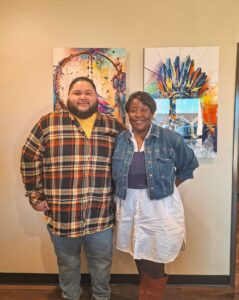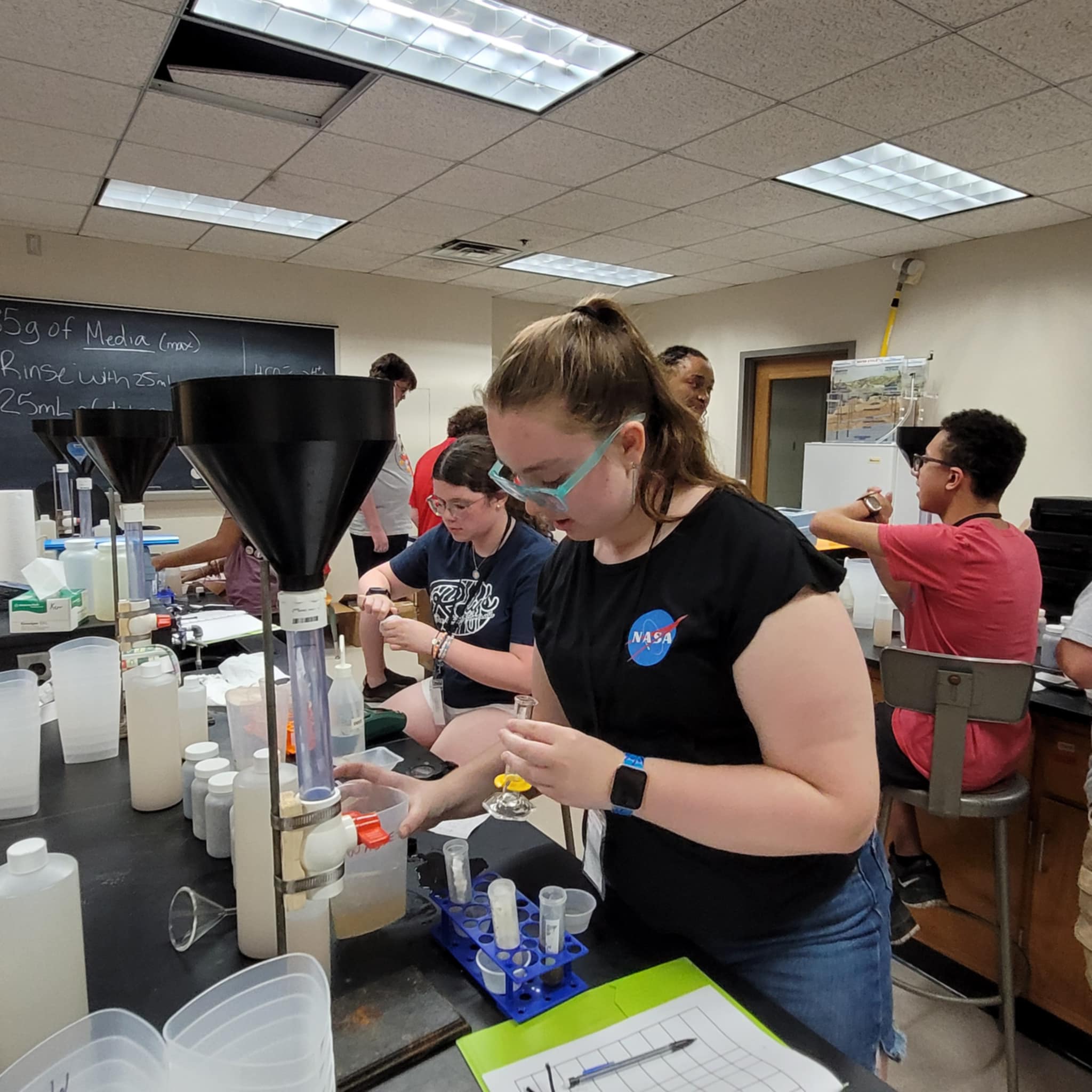
From Classroom to Community: Hands-On Water Education for Students
August 8, 2024 by Ada Jobs
By: Sunnie Dawn Baker
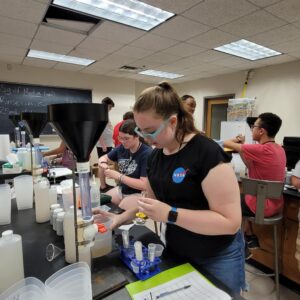 For many students, water science in schools is limited to learning the basics about the water cycle, but when one considers the importance of water in our lives, it is evident that more opportunities for water education needs to be available. However, the lack of funding and capacity in the public education system prevents schools from expanding their environmental science curriculum. Dr. Jessica Brumley, Assistant Professor of Biology and Environmental Sciences at ECU recognized this need and partnered with Dr. Robin Roberson, Associate Professor of Psychology at ECU, to offer these opportunities to local students through both a summer day camp and a workforce development initiative.
For many students, water science in schools is limited to learning the basics about the water cycle, but when one considers the importance of water in our lives, it is evident that more opportunities for water education needs to be available. However, the lack of funding and capacity in the public education system prevents schools from expanding their environmental science curriculum. Dr. Jessica Brumley, Assistant Professor of Biology and Environmental Sciences at ECU recognized this need and partnered with Dr. Robin Roberson, Associate Professor of Psychology at ECU, to offer these opportunities to local students through both a summer day camp and a workforce development initiative.
“The Human Water Cycle: Where’s My Water?” is a four-day day camp funded through the Oklahoma Regents for Higher Education and is completely free for participants. Normally these Regents camps are restricted to a single site. However, Brumley and Roberson proposed making the camp available at three different sites, and the Regents accepted their proposal. This allowed Brumley and Roberson to bring their curriculum to three different groups of students throughout the state. They first hosted the camp at Rose State College in Midwest City, then at East Central University, and finally at the University of Oklahoma.
On the first day of the camp, the students learn about water quality; they collectwater samples and test them. The students were surprised to find that their samples, which appeared to be clear and clean water, could actually be quite the opposite. Because looks can be deceiving, testing is critically important. However, in some cases, like the water from Wintersmith Lake, the students could see upon visual inspection that it was not safe to consume. In those cases, the students grew colonies of bacteria from the lake water.
On the second day, the students built upon the lessons from the first day by focusing on drinking water.. One interesting aspect of this camp being available at different sites is the difference in each community’s water infrastructure. For instance, Midwest City’s water treatment process, which sources water from Lake Thunderbird, is much more complex than Ada’s, which draws water from Byrd’s Mill Spring. Even though the students in Ada visited our local drinking water facility, Brumley and Roberson still noted the differences in Ada and other municipalities, highlighting the fact that every community must tailor its own infrastructure for its particular needs, especially regarding water safety.
On day three, the students focused on wastewater and visited the wastewater treatment plant. Again, the differences in the individual camp sites became apparent; Midwest City handles a much larger volume of waste than Ada does. Either way, though, the students collected a little bit of sludge and used their microscopes to examine the samples. While this might be the “grossest” day of the camp, it also excites the students the most. They learned how to look for microscopic organisms in the sludge. They also applied their lessons from waste treatment to pond water by aging water samples based on the organisms living in the water.
The final day of the camp features an engineering challenge where the students build a sand filter. Many water treatment plants use sand filtration to clean drinking water. The students focused on two elements for their filtration system: turbidity and run time. Turbidity describes how clear or cloudy the water appears after filtration and run time measures efficiency. To complete their challenge, the students experimented with different sizes of sand and grit, trying to figure out which combination would clean the water best. If the grit is too big, the water comes through the filter too quickly and doesn’t get cleaned. However, if the grit is too small, the water takes hours to filter, making it an inefficient model.
While the Human Water Cycle camp provides opportunities for hands-on learning about water, it is only one part of a larger workforce development initiative. In January 2022, ECU, in partnership with the National Rural Water Association and the University of Oklahoma, was one of only ten recipients nationwide to be awarded the Innovative Water Infrastructure Workforce Development Grant through the Environmental Protection Agency. This grant aims to encourage more students to explore career opportunities in the drinking water and wastewater utility sector and expand public awareness about these activities. To complete their objectives, Brumley and Roberson have been visiting schools in addition to running their summer day camps. Although they initially planned to pilot a program in individual schools, they quickly realized that most school districts simply do not have the capacity to add something like this to their curriculum. Instead, they reach out and visit the schools themselves, bringing curriculum and experiments with them. Eventually, they want the curriculum to be completely online as a resource for teachers to use whenever they need.
Water science is important for everyone to learn, whether or not they actually want to go into that field professionally. As Brumley says, “Water is the foundation for everything. For society and life, we can’t function without it. If you want to save more lives, become a water operator or a doctor.” Educated consumers are vital for water conservation, but individuals who know how to treat our water systems are even more critical. Through the opportunities that Brumley and Roberson are providing to the community, they are educating students, but also igniting a passion and excitement for water science that can positively impact the future for us all.
Written by
Ada Jobs
You may also interested in:
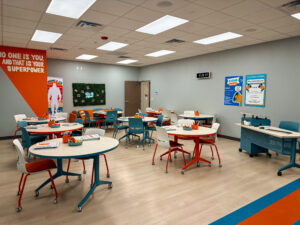
BUILDING FUTURES: WORK READY ADA CELEBRATES ITS FIRST YEAR
BY: CATHLENA SPENCER Just one year ago, Work Ready Ada, a new employment readiness program, was launched in partnership with Pontotoc Technology Center (PTC). The program, funded by Oklahoma Human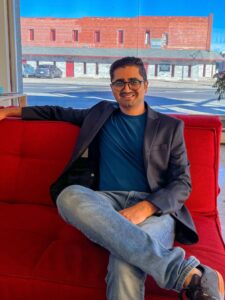
AI IN EDUCATION: A CONVERSATION WITH VINAYAK MITTY
BY: SUNNIE DAWN BAKER One of the areas in technology with the most potential for entrepreneurial growth is Artificial Intelligence (AI). AI is increasingly shaping every part of our lives,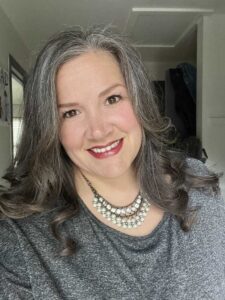
Adapt and Overcome: Allison Poe’s Recipe for Resilience and Growth
By: Sunnie Dawn Baker Allison Poe has always followed her feet. She waits for the signs to appear and, once she recognizes them, she travels that path, and has never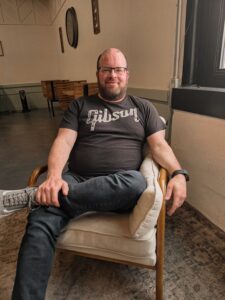
Jeff Warren: A Life in Sound, Vision, and Storytelling
By: Sunnie Dawn Baker When Jeff Warren got involved in the Houston music scene as a teenager, he had no clue where his path would lead. Now, nearly thirty years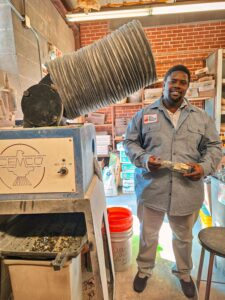
From Pitch to Progress: ECU's Glass Recycling Program Turns Waste into Opportunity
By: Sunnie Dawn Baker In 2018, Dr. Christine Pappas competed in Ada Jobs Foundation’s Big Pitch Competition by promoting grinding glass bottles into sand. She won the Big Pitch that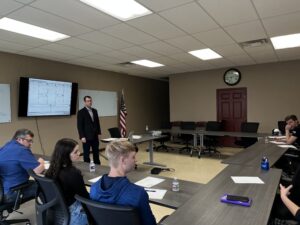
The Importance of Customer Discovery: Know Your Audience and Know Your Market
By: Sunnie Dawn Baker Entrepreneurs and small business owners must consider many factors to achieve success, with their target market being one of the most crucial. Sometimes, when people are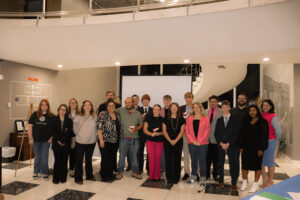
What Does Economic Development Do for You? The Significance of the Economic Multiplier
By: Sunnie Dawn Baker People often find the term “economic development” vague and confusing. Understanding how economic development works and benefits the community can be challenging. Though there are many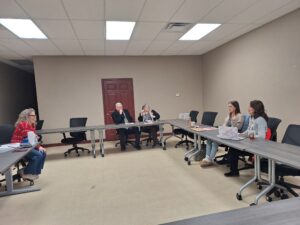
Helping Entrepreneurs One Workshop at a Time: Lauri Rowe and QuickBooks for Small Businesses
Entrepreneurs tend to be filled with passion and big ideas. They have found a solution to a problem they see in the world, and they barrel ahead, excited for their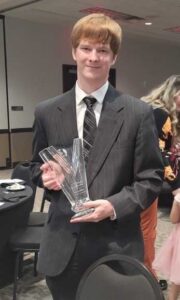
Hunter Cook: Technology, Entrepreneurship, and the Written Word
By: Sunnie Dawn Baker Hunter Cook started writing when he was seven years old. At first, he wanted to write comic books, but then he realized he couldn’t draw. He